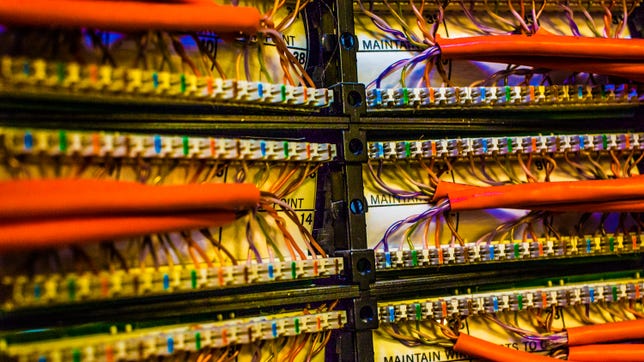
CNET
As expected, Internet companies have unleashed lawsuits to challenge the Federal Communications Commission’s new Net neutrality rules.
Groups representing broadband and wireless providers are suing to stop the FCC from enforcing new rules it adopted in February and officially published in the federal government’s journal of regulation on Monday.
Those rules forbid broadband providers from blocking or slowing online services or applications. They also prevent Internet service providers from creating so-called fast lanes that force content companies like Netflix to pay an additional fee to deliver their content faster to customers. The rules are slated to take effect June 12.
The FCC now faces five lawsuits. On Tuesday, the CTIA mobile trade group filed a suit, as did two cable lobbying organizations, the National Cable and Telecommunications Association and the American Cable Association, which represents smaller cable companies. The telecom industry trade group USTelecom and a small Texas-based Internet service provider, Alamo Broadband, filed their suits against the FCC in March.
The lawsuits take issue with the legal basis the FCC used in implementing its rules; specifically, reclassifying broadband service as an old-style utility. That reclassification, they say, could give the FCC authority to set rates and impose tariffs that in turn could lead to higher prices for consumers. They also say the new classification curbs their ability to compete, and discourages them from building new networks and improving existing ones.
“This appeal is not about Net neutrality but the FCC’s unnecessary action to apply outdated utility style regulation to the most innovative network in our history,” Michael Powell, the NCTA’s CEO, and a former chairman of the FCC, said in a statement. “The FCC went far beyond the public’s call for sound Net neutrality rules. Instead, it took the opportunity to engineer for itself a central role in regulating and directing the evolution of the Internet.”
The CTIA lawsuit additionally challenges the FCC’s decision to include wireless Internet services under the new regulation. Previous rules applied stricter limitations to wired broadband networks, while wireless networks were subject to less stringent restrictions.
“Instead of promoting greater industry investment in the connected world of tomorrow, the FCC opted to resuscitate a command-and-control regulatory regime, including a process where innovators must first seek permission from the FCC before rolling out new services,” Meredith Atwell Baker, CEO of the CTIA, said in a statement.
The FCC said it believes the rules will be able to withstand any legal challenges.


Allison Shelley/Getty Images
“As Chairman [Tom] Wheeler has said, we are confident the FCC’s new Open Internet rules will be upheld by the courts, ensuring enforceable protections for consumers and innovators online,” said Kim Hart, an FCC spokeswoman.
The FCC has been readying itself against potential lawsuits since before adopting the rules.
“We think we have a clear legal case,” Chairman Wheeler told CNET in January before the rules were passed. He said the agency was writing the rules with the “full expectation that it will be reviewed by the court.”
The publication of the document in the Federal Register starts the official 60-day clock before the new rules take effect. It also marks the starting point for filing legal challenges.
USTelecom, a consortium of ISPs, filed the first lawsuit in March, before the rules were published in the Federal Register, arguing they are “arbitrary, capricious and an abuse of discretion,” and violate federal law. USTelecom filed a petition to keep its case alive within minutes of the rules being published Monday.
If NCTA and others ask for a stay, a court could block the rules from taking effect if it decides any of the lawsuits has merit.
The FCC has lost two previous court battles to defend rules to protect the Internet. The new regulations adopted in February came after years of grappling with how much or even whether the federal government should be involved in regulating the Internet.
The FCC believes that its previous attempts to impose protections for an open Internet failed because the agency did not reclassify broadband.




